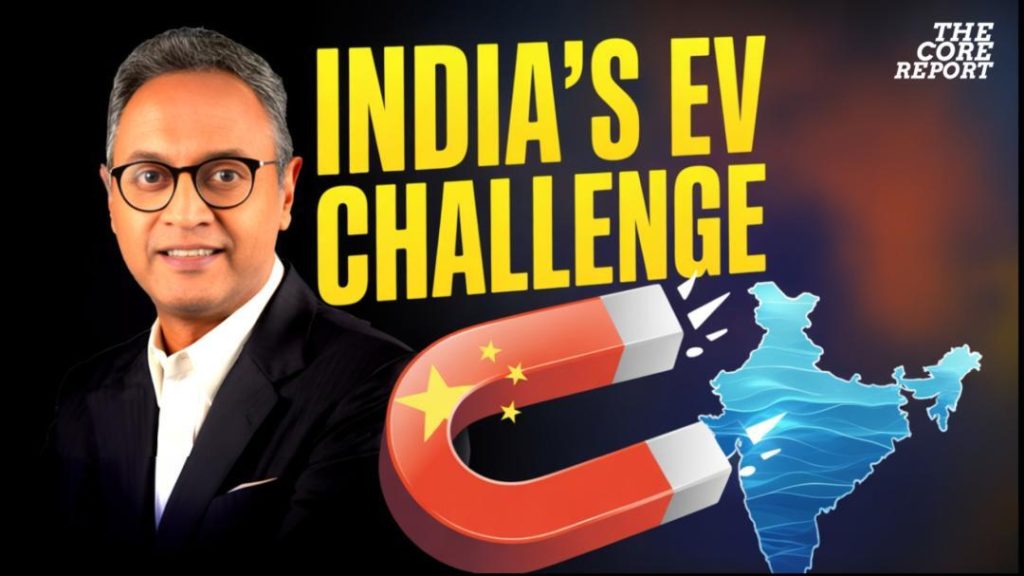
Can India Build EVs Without China’s Critical Magnets?
The Indian electric vehicle (EV) sector is facing a significant challenge as supplies of rare earth magnets from China slow down. The country’s leading automakers, including Bajaj Auto and Maruti Suzuki, may be forced to cut production, just as the festive season is approaching. This development has sent shockwaves through the industry, prompting experts to explore alternative solutions to reduce reliance on China and ensure long-term supply security.
Rare earth magnets are a crucial component in the production of EV motors, accounting for around 15% of the total motor cost. China dominates the global supply of these magnets, with the majority coming from the city of Inner Mongolia. However, recent reports suggest that China’s production capacity is struggling to meet demand, leading to a significant shortage.
The impact of this shortage is already being felt in India, with several EV manufacturers reporting delays in production schedules. Bajaj Auto, one of the country’s leading two-wheeler manufacturers, has reportedly told suppliers to cut production by 10% due to the shortage. Similarly, Maruti Suzuki, one of the largest four-wheeler manufacturers in the country, is also facing production delays.
The situation is particularly concerning for the Indian EV sector, which is still in its early stages of growth. The government has set ambitious targets to promote the adoption of EVs, with plans to have 30% of all new car sales electric by 2030. However, the shortage of rare earth magnets threatens to derail this progress.
Industry experts are now scrambling to find alternative solutions to reduce reliance on China and ensure long-term supply security. One potential solution is the development of magnet-free motors. These motors use alternative materials, such as carbon fiber or copper, to generate magnetic fields, eliminating the need for rare earth magnets. While these motors are still in the experimental stage, they hold promise as a potential game-changer for the Indian EV sector.
Another solution being explored is the development of domestic manufacturing capabilities for rare earth magnets. India has significant reserves of rare earth minerals, particularly in the states of Andhra Pradesh and Odisha. With the right investment and policy support, India could potentially become self-sufficient in the production of rare earth magnets.
Government support is also seen as crucial in addressing the shortage. The Indian government has already taken steps to promote the domestic production of EV components, including the setting up of a Rs 1,000-crore fund to support the development of battery manufacturing facilities. However, more needs to be done to ensure long-term supply security.
In conclusion, the shortage of rare earth magnets from China poses a significant challenge to India’s EV sector. While industry experts are exploring alternative solutions, including magnet-free motors and domestic manufacturing capabilities, the government needs to provide policy support to ensure long-term supply security. The Indian EV sector is still in its early stages of growth, and it is crucial that the country takes proactive measures to address this shortage and ensure a sustainable future for the industry.
News Source: https://youtu.be/uykPToVy4eg






